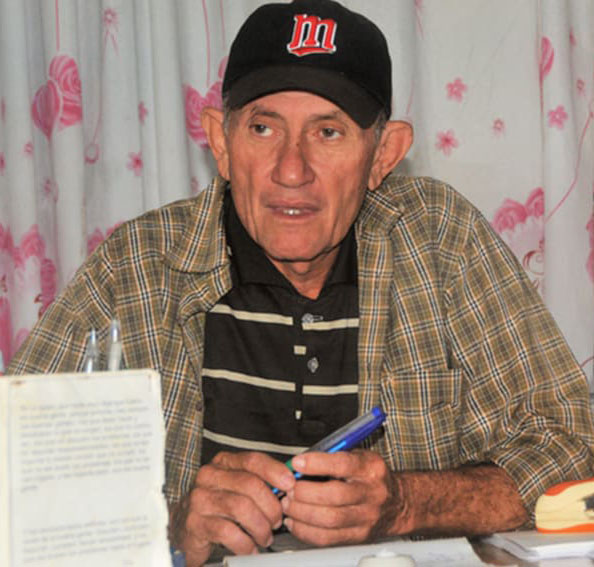
Talking with Manolito about the issue of water supply in Manatí is an enjoyable experience even though we take for granted, from before the dialogue, that the area qualifies as one of the driest territories in the country. “But no one can say that the land will not continue to be dug up.”
With more than 20 years as director of the Municipal Company of Aqueduct and Sewerage, Manuel Rivero Cabrera does not need to look at his agenda to tell the second how the distribution cycles and list with a wrinkled forehead the neighborhoods where is more precarious to obtain the precious liquid.
There is not a twist and turn that is not known, nor a forgotten well, nor a water train that escapes him. Talking to Manolito is to have the certainty that the service is a priority, even though right now the lack of electricity makes pumping difficult and the life of the Manatí inhabitants is tinged with dissatisfaction.
OTHER WATERING HOLES
Friendly as always, and a born conversationalist, he tells us that he is a hydraulic technician, but his training comes from the Social Sciences. His best school was the former Ministry of Sugar (MINAZ in Spanish), where he worked as head of the steam plant at the former Argelia Libre sugar mill.
In front of the microphone, he recalls those days. The smell of molasses, the steam in the wind, the deafening sound of the boilers, and at the same time, the immense commitment to keep the iron mass vital, to take care of every detail to avoid accidents. The glow of nostalgia escapes him...
“The ‘Argelia Libre’ experience allowed me to get into this world of water, to master a group of things. And I'm very grateful for that, however much it forced me to study, to better myself, and never stop, even though I'm no longer a boy.”
“The challenge is great, have to be clear. I studied Water Treatment in the capital, and this was pushing me for tea. That is, if we are hydraulic technicians and if we have a specialization in Letters, we are prepared to face all the challenges we have," he jokes.
He acutely assures that despite the limited availability of resources, there is a good working system in the municipality, and the territory's authorities are very close to the entity, its challenges, and daily effort.
“It is taken care of, it is prioritized. We are, perhaps, one of the organizations that is most closely related to the community. We always try not to miss a meeting in the neighborhoods, to know the reality of each family because in the end that is what we work for.”
“A large percentage, more than 80 percent of the solutions that are executed in the territory are through exchanges with the community, through accompaniment. The actions that have been done in places like San Martín, the Politécnico, in the Cerro, de Dumañueco, and the Guinea, there has been support from the neighborhoods, I have to say that there is satisfaction in that.”
“The neighborhoods have understood that they can cooperate to achieve a hydraulic solution. And what a joy it gives us to work like this, with our pants rolled up.”
BETWEEN SCIENCE AND THE PEOPLE
“Look, with San Martín, something unthinkable happened to us. The community had a well that dried up every year. And there was an unsatisfied population in the place, with a water supply of 20 kilometers in pipes. The thing was plagued with complaints, and rightly so.”
“The people of San Martín got together to tell us where they thought there was water, which, by the way, did not coincide with the studies we had done as hydrologists. And there was so much pressure from the neighborhood that we decided to show San Martín people that in the neighborhood, we were going to fail with the well. And look, negative.
The water was there. There were knowledgeable families, who said that their grandparents had told them that there was a well there that supplied I don't know how many heads of cattle.”
“And not to beat around the bush, the community today has a well from which we are drawing five liters per second. It was done, and it was a success. That day, we took away many lessons; we have to listen to the voice of experience.”
“I have no shortage of anecdotes. The people of Manatí can understand that other resources can be affected, but they don't understand the water issue. Here, we start from the concept that without water in a house, you cannot live; it is very, very, very complex.... So, imagine the challenge I have to take on.”
…
Manolito is known for always having a project in hand. Now, he speaks vehemently about protecting the pumping of water with renewable energies, about continuing to promote the construction of wells, and about digging and digging. He knows he has in his hands an invaluable resource for the people who have also been able to support his goals.





